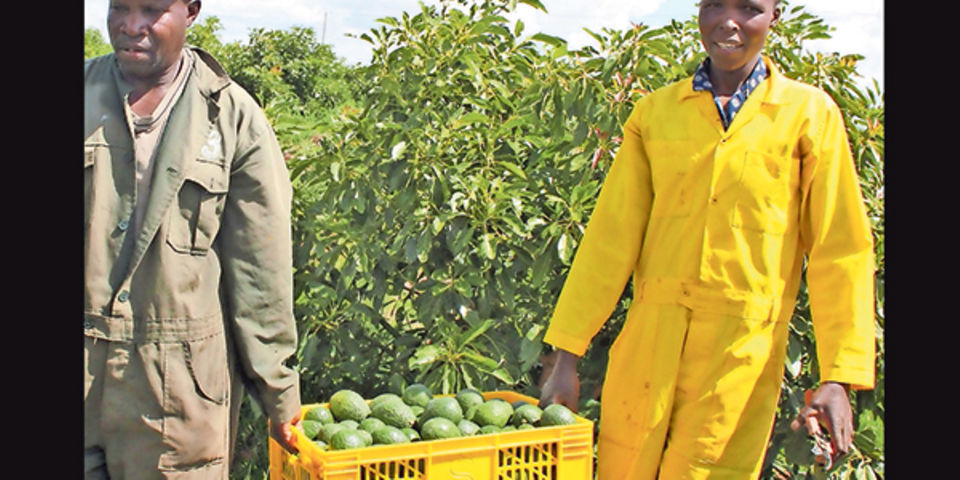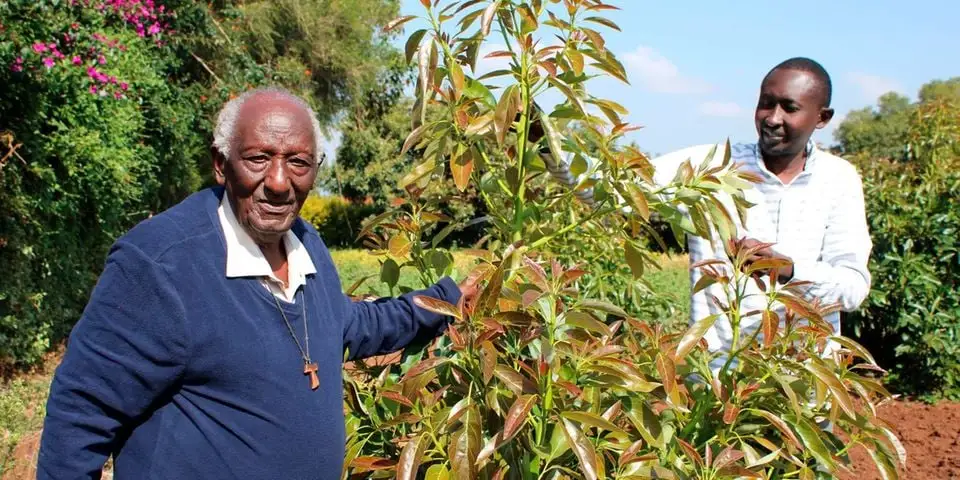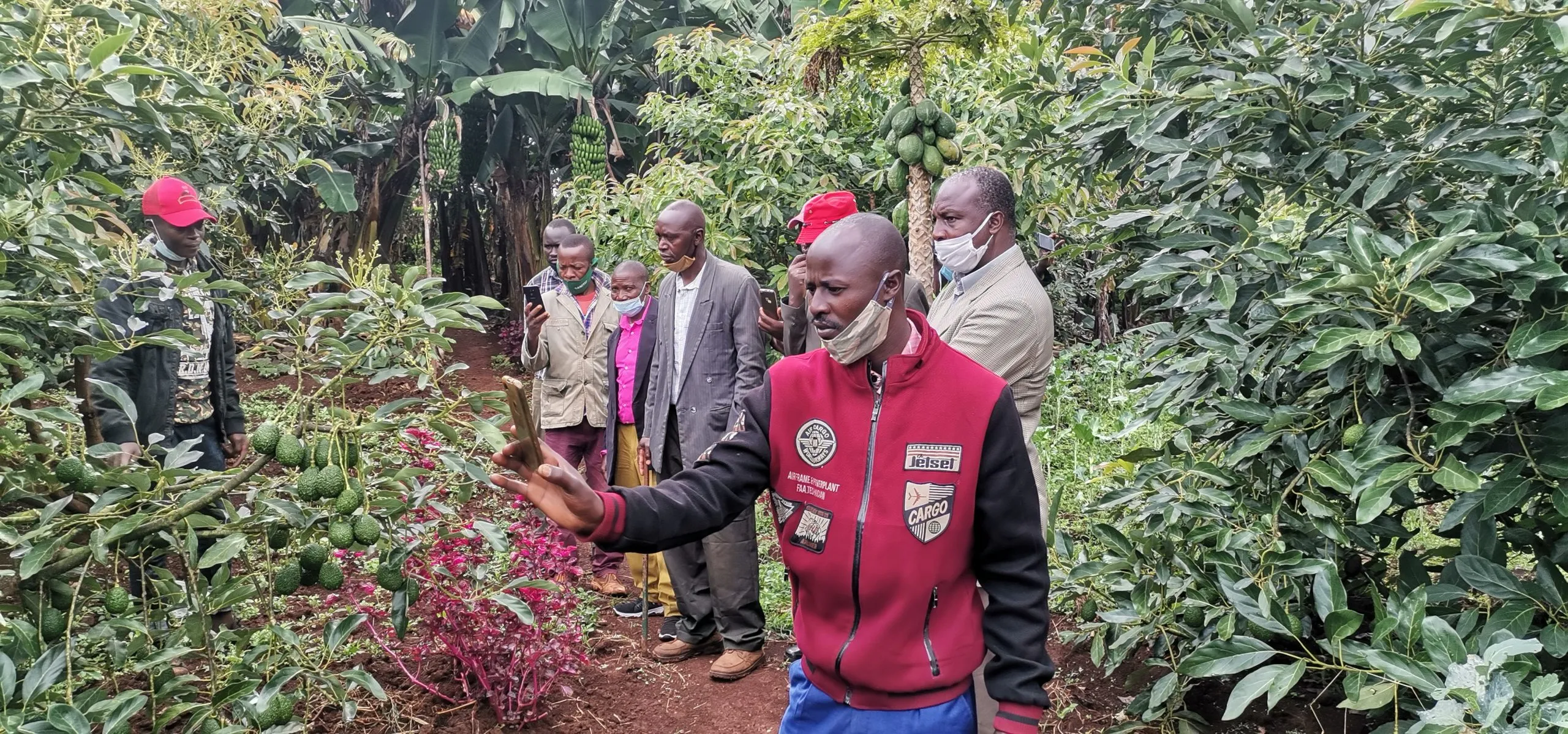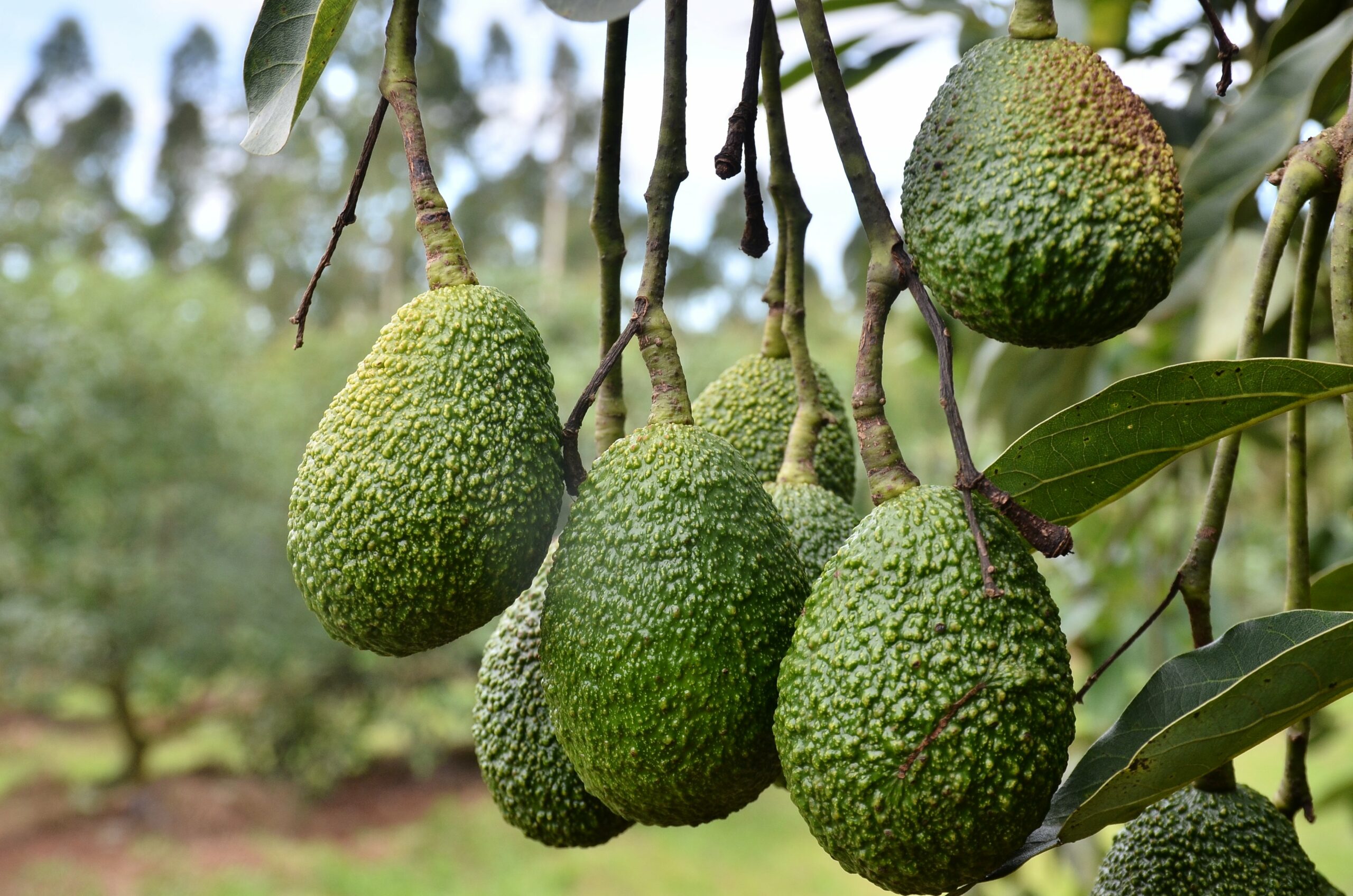With new deals that have opened the foreign markets, the exports are expected to rise as more farmers join the trade.
Kenya exports hass avocados and other produce like French beans, baby corn and snow peas to the United Arab Emirates, the United Kingdom, Egypt, the Netherlands, France, Saudi Arabia, Belgium, Spain, Qatar, Bahrain, Kuwait, Germany and Hong Kong, with more emerging markets in Malaysia, Singapore and South Korea.
But what does it take a prospective farmer to become a direct horticulture produce exporter?
Before you get clearance to start exporting your produce, you will go through 56 steps that involve shuttling from one government agency to another.
According to Kenya Trade Network (KenTrade), which facilitates export business, an exporter has to get several licences that include food hygiene certificate and pack house inspection report from the Horticultural Crops Directorate (HCD).
One also needs a phytosanitary certificate from Kenya Plant Health Inspectorate Service (Kephis), which also registers exporters.
Export health certificate is sought from Port Health Services (PHS) and clearance of the consignment with Kenya Revenue Authority (KRA) is needed.
KenTrade’s step-by-step guide released recently shows that the 56 steps involve trips to 11 different offices, some over 10 times, like HCD, which issues 11 licences.
To get started, one needs a food hygiene licence issued by PHS at Jomo Kenyatta International Airport or by public health officers in the counties.
This is required by all facilities that process and package products for human consumption, for example pack houses. The document costs Sh2,000 and takes two or three days to process.

ALL THE REQUIREMENTS
The next stop is premise inspection, also done by PHS to ascertain whether a farmer has all the requirements, including a food hygiene licence, valid medical certificates for the personnel of the premises and protective clothing and equipment. This takes a maximum of three hours.
After that, one requests for pack house inspection by the HCD officials, which takes about two hours.
The owner must give a list of produce handling staff, traceability procedure (copy) — which should contain farm codes, produce collection notes and codes, stock records, protective clothing and equipment for personnel handling the produce and packing facility.
HCD must ensure that the pack house is safe, free of waste materials, has adequate ventilation, temperature control, lighting and designed to prevent entry of animals, pests, insects and dust. Tables should be made of stainless steel and easy to clean.
After obtaining the pack house inspection report, the farmer requests the same agency for a farm inspection, where the farm is assessed to check if it has good security, hygiene, grading facility, storage area, plastic crates and pallets, ventilation and a waste disposal facility.
Once cleared, a farmer fills and submits an application for hass avocado export licence at HCD, a step that requires nine other documents to be attached; including the already obtained reports, business permit, and tax compliance certificate.
A notification for approval should be given before a farmer pays Sh10,000, half of which is export licence fee and a similar amount for advance cess fee, a form of levy imposed on all horticultural crops for export.
One then registers to become an exporter, which is done at Kephis. The application costs Sh15,000, which comprises a deposit for phytosanitary certificates and farm inspection.
Kephis will subsequently carry out an audit, then training on electronic certification system, which can be done physically or on phone, and later they give the farmer an export authorisation letter via mail.
There is then a compulsory three-day training, done by KenTrade, aimed at acquainting the trader with the industry.
For training in Nairobi and Mombasa, one pays Sh10,000, while those trained in regional offices have to fork out Sh18,000.
A farmer will then register his company with the Kenya National TradeNet System (KESWS), where one can transact online and access trade-related procedures and updates.
CRUCIAL STAGE
Another crucial stage is obtaining a European Union (EU) certificate of origin. This is obtained from KRA after submitting an application and then the taxman has to verify the origin of the product at the premises.
Time taken depends on the size of the premise, the complexity of the production process, and the number of products to be verified.
They will then give a registration letter and payment authorisation slip, which one is required to produce while making payment of Sh300 at the bank for issuance of the EU certificate of origin.
Since the original EU certificate of origin must be typed and not handwritten, an entity known as Typesetting Company is mandated to do the typing. It should then be submitted for signing at KRA Forodha House in Nairobi.
The next stage is obtaining export clearance from HCD, which has to test the export samples and issue the trader with an oil content analysis report, and the laboratory analysis and evaluation sheet.
Only after approval can one get an export clearance, which is sent via mail.
One then heads back to Kephis, this time for a phytosanitary certificate. A request for inspection of consignment is placed and once cleared, an application for a phytosanitary certificate is also done, and Sh500 paid for the licence that comes out after an hour.
While the certificate of conformity is not a mandatory requirement, it may be needed by some markets such as the European Union and is therefore issued upon the request of the applicant.
To obtain an export health certificate, one pays Sh1,500 to KenTrade. Afterwards, another consignment inspection is done by PHS.
This paves the way for the final stage of clearance of the consignment. One has to contract a clearing agent at the Kenya International Freight and Warehousing Association (Kifwa), who will be paid 1 per cent of the total value of the goods.
Customs entry is lodged at KRA before payment for airline concession fee of Sh250 at the bank.
A trader then submits the documents for verification, still at the customs shed, followed by physical verification of the consignment.
A pass entry is obtained and documents submitted for perfection.
STRINGENT REGULATIONS
Finally, a farmer obtains a certificate of export number, which is a confirmation that the export procedure is complete. The hass avocado exporter can use it to claim VAT from the government where applicable. The certificate is issued to the applicant upon request at a cost of Sh500, otherwise the department only issues the certificate number.
At the end of it all, one ends up with 11 documents namely food hygiene licence, pack house inspection report, farm inspection report, HVD export licence, export authorisation letter, user credentials, authentication EU certificate of origin, export clearance, phytosanitary certificate, export health certificate and certificate of export number.
At the end of it all, you would have parted with Sh40,000 minus the costs of moving from one place to another.
KenTrade chief executive officer Amos Wangora said the 56 steps were necessitated by the stringent regulations on the quality of produce set by the trading partners.
“By the time of signing agreements, these requirements are already set. We, therefore, undertake these steps to comply,” says Mr Wangora.
According to him, the current export steps take about two weeks to complete, unlike before. However, an exporter can take up to three months depending on the nature of the certificate sought.
“Online documentation brings about efficiency and helps us streamline the process. Already, we are relooking at the big number of steps in exporting. We are working as KenTrade in the department of trade with a view to reduce the cost of doing business in the entire supply chain,” says Wangora.
****
Our route to selling avocados abroad
Two weeks ago, after a meeting between exporters and KenTrade, a government export agency, in Nairobi, a trader reached an officer seeking help to verify if indeed a company that had ordered her avocado pulp online existed.
Rosemary Muita, an agribusiness trader in Nairobi, is fairly new in the export trade, having started making avocado crude oil in 2017.
She exports to specific customers, who make orders online. The agency offers screening services for potential international buyers using an online system, as part of due diligence to help local traders not be conned. For traders like Rosemary, it’s a crucial procedure that saves one from selling to fraudsters.
She tells Seeds of Gold that she has exported nearly 20,000 litres of avocado pulp since she started her business.
“I add value to avocado by processing crude oil using a small machine,” she says. But unlike others who send their products directly to the foreign market, she sells through agents since she lacks the clearance to export. If she were to sell directly, she would earn Sh1,500 per litre of the crude oil, but the agents take more than half, paying her only Sh700.
“The procedure of acquiring export permit is tiring and costly. As a small business, I am struggling to stay afloat, therefore can’t pay so many government agencies to get certification,” she says. Moving from one office to another is also cumbersome and ends up discouraging traders like Rosemary.
According to her, whenever a client is interested in her product, she first takes a sample (a litre) of the oil to Kephis for screening and to be given a phytosanitary licence.
Thereafter, she hands the product to an agent seconded by the client for export.
Once the client receives and likes the product, they make orders for several more litres, which also go through the same process to export.
Rosemary has a few avocado trees. She therefore contracts some farmers in Kiambu to supply her with more. The business, however, fluctuates depending on the market.
The health nutritionist also sells the fruits locally and trains women on adding value to avocados. She says her machine only processes crude oil, but there are more opportunities to supply refined products like cooking oil and beauty products.
PHYSICAL DEFORMITIES
For Limpompo Farm in Eldoret, owner Micah Cheserem exports his produce through Limuru-based Sunripe Limited, an exporting agent.
Noah Lagat, the farm manager, says they are currently targeting to harvest between 40 and 50 tonnes of fruits from 1,800 trees. The second harvesting will start in November.
Lagat observes that there are different avocado sizes in the market, from 12 to 32. “The bigger the size, the higher the price they will fetch in the market. Most of the fruits on this farm are size 14 to 20,” explains Lagat.
Cheserem says that when exporting through an agent, a farmer is not expected to have the many licences, though he or she has to comply with several rules. “But if I decide to have my packaging facilities and export directly, I will have to get those licences. For now I transport my produce and deliver to Sunripe Limited in Limuru,” says the farmer.
He acknowledges that transportation of the produce to agents may be a problem to many small farmers. Therefore, in his region, they plan to start Sirikwa Avocado Group to ease the challenges.
John Kimani, who works with Sunripe Ltd, says the produce is cleaned, sorted, graded and then stored in a cold room for about two days, then packaged before being transported to Mombasa for shipment to various destinations.
The produce is sold to European markets such as Spain, Italy and Germany as well as China. Sometimes there are market fluctuations, especially oversupply from countries like Mexico, Peru and Chile.
He says that avocados can be peeled, frozen or transported to be sold as raw fruits. Grade two avocados are those with physical deformities while grade one have none.
KenTrade chief executive officer Amos Wangora notes that export agents are important in helping small-scale farmers access export markets.
“A farmer in Kirinyaga may not have access to China, or may be barred by language barrier from entering deals. There are issues like refrigeration, which are cost-intensive for the small farmer but agents can offer these services,” he says.
“So to be able to benefit from economies of scale, farmers should form co-operatives or be part of companies that understand the value chain well,” he says.
-By Anita Chepkoech and Stanley Kimuge





